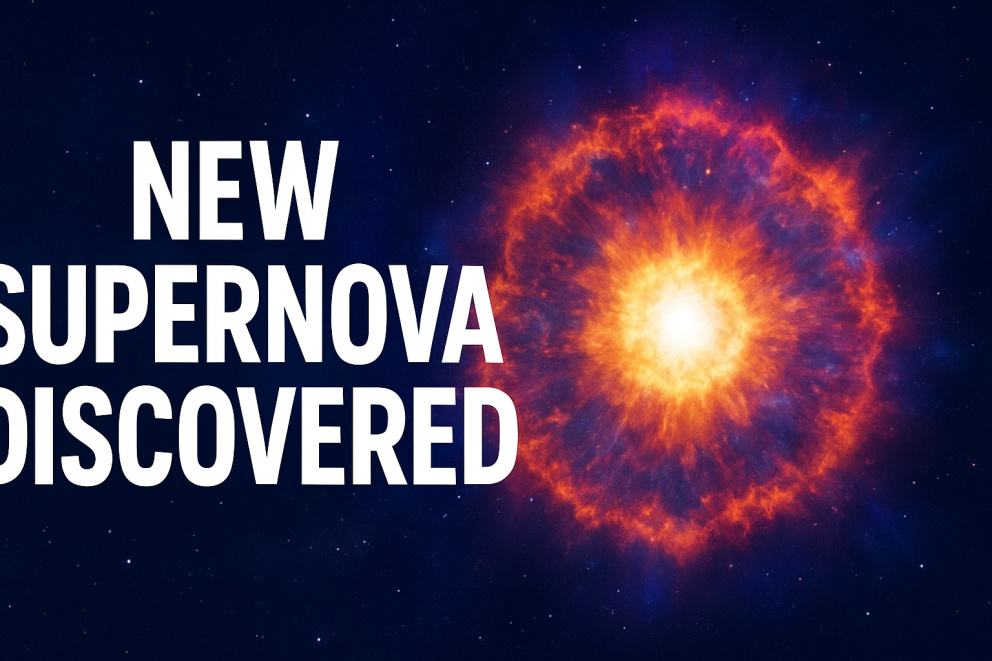Black Hole Causes Rare Stellar Explosion: New Supernova Discovered
Introduction
Astronomers have made a groundbreaking discovery: a black
hole caused a rare stellar explosion, giving rise to a new type of
supernova. Unlike typical star deaths, where a star collapses under its own
weight, this explosion was triggered by a black hole stripping material from a
companion star. The event challenges established theories of stellar evolution
and offers a new perspective on how the universe recycles matter.
What Is a
Supernova?
A supernova is the explosive death of a star,
releasing enormous amounts of energy and scattering heavy elements across
space. Traditionally, scientists have identified two main types:
- Type
I Supernovae – When a white dwarf gathers excess material from a
nearby star, triggering a thermonuclear explosion.
- Type
II Supernovae – When a massive star runs out of fuel and collapses
under its own gravity.
This new discovery reveals a third pathway, where a black
hole triggers a stellar explosion, opening a brand-new chapter in
astrophysics.
How a
Black Hole Triggered a Rare Supernova
In this event, the black hole was locked in a binary
system with a massive star. Instead of simply consuming its partner, the
black hole’s gravitational pull tore matter away, destabilizing the star’s
core. This sudden disturbance caused uncontrolled nuclear reactions that led to
a violent and rare stellar explosion.
This process shows that black holes are not just cosmic
destroyers but also catalysts for new astrophysical phenomena.
Detection
of the New Supernova
The discovery came through sky surveys that monitor
sudden cosmic events. Astronomers noticed unusual brightness patterns that didn’t
match existing supernova types. By analyzing data across multiple
wavelengths—visible light, X-ray, and radio—scientists concluded that this was a
black hole-induced supernova.
This breakthrough demonstrates the power of multi-messenger
astronomy, where different observational techniques combine to unlock new
cosmic mysteries.
Why This
Discovery Is Important
1. Expanding Supernova Classifications
This marks the first evidence of a new supernova subtype,
forcing scientists to expand their classifications beyond Type I and Type II.
2. Cosmic Recycling and Heavy Elements
Supernovae are responsible for spreading heavy elements like
oxygen, iron, and carbon. With this new pathway, black holes may play a bigger
role than previously thought in enriching galaxies with the building blocks
of life.
3. Rethinking Black Holes
Traditionally viewed only as destructive, black holes now
appear to also act as agents of transformation, reshaping our view of
their role in stellar evolution.
4. Updating Astrophysical Models
This discovery means existing models of stellar death and
binary systems must be revised to account for these rare, black
hole-triggered events.
Could It
Happen in the Milky Way?
The Milky Way hosts numerous binary star systems, some
involving black holes. While the chances of a similar explosion happening close
to Earth are minimal, astronomers believe such events may have already occurred
in our galaxy’s past.
If one did occur nearby, it would create a brilliant
light show visible to the naked eye, rivaling the brightest stars in the
night sky.
Future of
Black Hole Supernova Research
The discovery opens new doors for astrophysics. Upcoming
observatories like the James Webb Space Telescope (JWST) and the Vera
C. Rubin Observatory will likely detect more such events, helping
astronomers answer key questions:
- How
often do black hole-triggered supernovae occur?
- What
unique chemical signatures do they leave behind?
- How
do they influence galaxy evolution over billions of years?
With improved observational tools, scientists will uncover
more examples, providing clearer insights into these rare cosmic explosions.
Conclusion
The detection of a supernova triggered by a black hole
marks a historic moment in astronomy. It introduces a new subtype of stellar
explosion, reshapes how we think about black holes, and highlights the
universe’s ability to surprise us.
Black holes are no longer just silent consumers of
matter—they can also spark spectacular cosmic fireworks. Each discovery like
this brings us closer to understanding the grand story of the universe
and humanity’s place within it.









